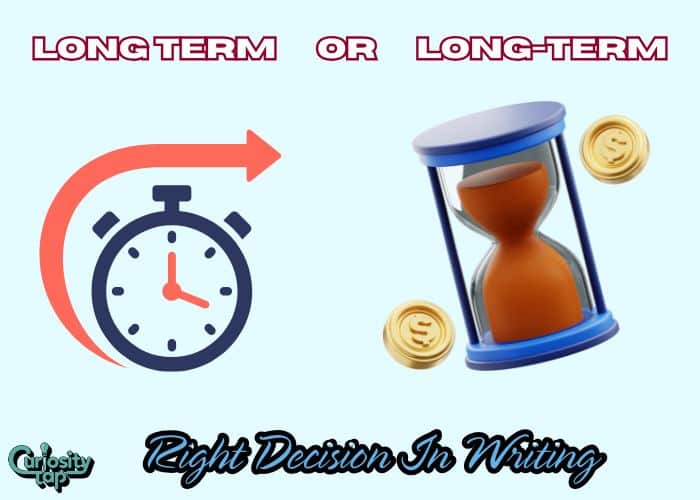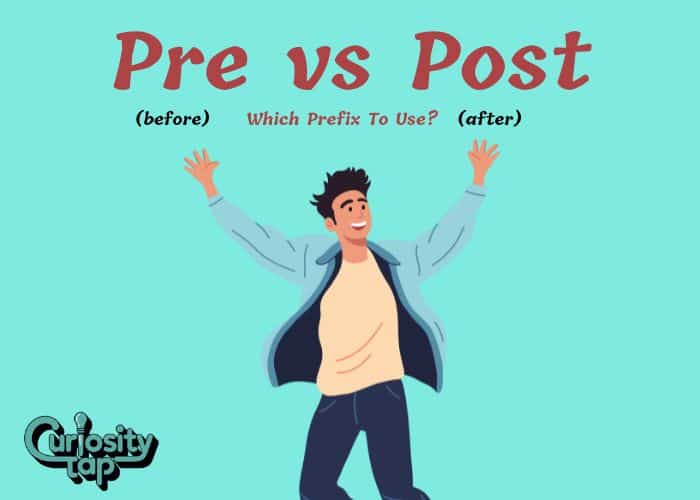When writing, even the smallest details like a missing hyphen can change how professional your work appears. Many people struggle with whether to write “long term” or “long-term.”
The confusion lies in grammar rules, context, and style guides. Get this right, and your writing instantly feels polished and credible. Get it wrong, and it may come across as sloppy or inconsistent.
This guide breaks down the difference, shows real examples, and gives you a simple checklist to always make the right decision between long term and long-term.
Understanding the Core Difference
The choice between “long term” and “long-term” depends on whether the phrase is used as a noun, adverb, or adjective. Let’s explore.
When to Use “Long Term” (Two Words)
- Used as a noun or adverb.
- Refers to a period or span of time.
- Example: We need to think about the long term.
When to Use “Long-Term” (Hyphenated)
- Used as an adjective before a noun.
- Describes something lasting a significant duration.
- Example: She invested in a long-term project.
Grammar Rules Backed by Style Guides
According to the AP Stylebook and Chicago Manual of Style:
- Use the hyphenated form when it modifies another noun (adjective).
- Use the two-word form when it stands alone as a noun or adverb.
For example:
- ✅ Long-term success requires patience.
- ✅ He is focused on the long term.
Real-Life Example: Corporate Investment Decisions
Imagine two executives writing reports for a company’s board:
- Executive A writes: “The company is committed to long term growth.”
- Executive B writes: “The company is committed to long-term growth.”
Even though both sentences seem correct, only Executive B follows the grammar rule. The first version risks confusing readers or appearing careless in professional contexts. In industries like finance, law, and academia, such details influence how seriously your work is taken.
This small but critical difference can impact credibility, decision-making, and even how investors perceive company reports.
Also Read:
Steam or Steem: What’s The Difference?
Catalogue or Catalog: What’s The Right Spelling?
Challenge or Challange: Correct Spelling & Usage Explained
Of Course or Ofcourse: Correct Spelling Explained
Hoodie or Hoody? Choosing The Right Spelling
Common Mistakes and How to Avoid Them
❌ Mistake 1: Always Using the Hyphen
Some assume “long-term” looks more formal and use it everywhere. But the long term (noun) never takes a hyphen.
❌ Mistake 2: Dropping the Hyphen in Adjectives
Writing “long term goals” is incorrect. Always hyphenate when modifying a noun: long-term goals.
Checklist: Quick Way to Decide
| Situation | Correct Form | Example |
|---|---|---|
| Used as a noun | long term | We must plan for the long term. |
| Used as an adverb | long term | They saved money for the long term. |
| Used as an adjective | long-term | She developed a long-term strategy. |
Rule of Thumb:
👉 If it comes before a noun, use the hyphen. Otherwise, use the two-word form.
Pros and Cons of Each Form
“Long Term” (Two Words)
Pros:
- Grammatically correct when used as a noun/adverb.
- Clear in academic and formal writing.
Cons:- Misuse in adjective form looks sloppy.
“Long-Term” (Hyphenated)
Pros:
- Correct when used as an adjective.
- Improves clarity by linking words.
Cons:- Overuse can lead to errors when it should be two words.
FAQs
Is “long term” one word or two?
It’s always two words, but sometimes hyphenated as “long-term” when used as an adjective.
Do British and American English differ?
No, both follow the same hyphenation rule, though British writers may be slightly more consistent in applying it.
Can I always use “long-term” to be safe?
No. Using it as a noun (in the long-term) is incorrect.
Is “short term” vs. “short-term” the same rule?
Yes. “Short term” works as a noun/adverb, and “short-term” is correct as an adjective.
What about formal documents or resumes?
Always follow the rule: hyphen before a noun, no hyphen otherwise. Employers and academic reviewers notice such details.
Final Thoughts
Knowing when to write “long term” and when to write “long-term” is a subtle skill that elevates your writing. Whether drafting a research paper, a resume, or a business proposal, this small detail can affect clarity and credibility.
Call to Action
Want to sharpen your English and write successfully every time?
Check out our Grammar Checker Tool and never second-guess your spelling again!
Read our guide on Common English Misspellings to boost your skills even further.
Sources
Sources:
- Associated Press. (2023). AP Stylebook Online. https://www.apstylebook.com/
- University of Chicago. (2022). Chicago Manual of Style, 17th Edition. https://www.chicagomanualofstyle.org/
- Grammarly. (2024). Hyphen Rules in English Grammar. https://www.grammarly.com/blog/hyphen/
Read more knowledgeable blogs on Curiosity Tap
Is this article helpful?

Jackson Pearson is a passionate educator and language enthusiast behind the blog Jackson Pearson. With years of experience in teaching and writing, he specializes in simplifying complex grammar rules, breaking down tricky vocabulary, and crafting learning guides that are both engaging and practical. His mission is to help readers boost their English skills whether they’re beginners or brushing up for fluency. Through every article, Jackson brings clarity, structure, and a spark of curiosity to the world of English learning.



